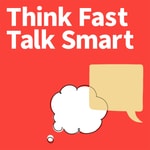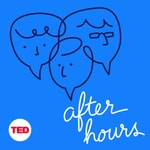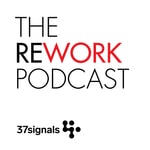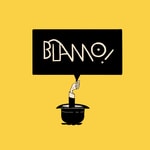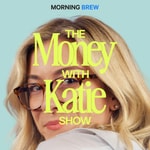Unseen Unknown – Détails, épisodes et analyse
Détails du podcast
Informations techniques et générales issues du flux RSS du podcast.
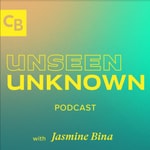
Unseen Unknown
Jasmine Bina, Jean-Louis Rawlence
Fréquence : 1 épisode/58j. Total Éps: 26

Classements récents
Dernières positions dans les classements Apple Podcasts et Spotify.
Apple Podcasts
🇬🇧 Grande Bretagne - marketing
22/06/2025#61🇨🇦 Canada - marketing
30/05/2025#57🇬🇧 Grande Bretagne - marketing
23/05/2025#54🇨🇦 Canada - marketing
22/05/2025#59🇨🇦 Canada - marketing
11/05/2025#97🇨🇦 Canada - marketing
10/05/2025#90🇬🇧 Grande Bretagne - marketing
08/04/2025#85🇨🇦 Canada - marketing
01/03/2025#65🇬🇧 Grande Bretagne - marketing
07/01/2025#56🇬🇧 Grande Bretagne - marketing
05/01/2025#95
Spotify
Aucun classement récent disponible
Liens partagés entre épisodes et podcasts
Liens présents dans les descriptions d'épisodes et autres podcasts les utilisant également.
See allQualité et score du flux RSS
Évaluation technique de la qualité et de la structure du flux RSS.
See allScore global : 59%
Historique des publications
Répartition mensuelle des publications d'épisodes au fil des années.
26: How Consumers “Know” Things In Today’s World
lundi 20 novembre 2023 • Durée 26:54
From the way we create our identities and manage our health, to the way we employ therapy-speak at work and vote in elections, it’s apparent that people are increasingly being guided by feelings and intuition in places where they may have once relied on reasoning or ideology.
This noetic, direct-knowing way of moving through the world may sound familiar to you. Perhaps a colleague was “guided” to change careers, or a friend decided to “detox” their personal life. Maybe you, yourself, have dabbled in any form of “energy” practices.
None of these major decisions came from religious ideology. None of them came from scientific reasoning. They came from a third place of intuition, and this is an important cultural shift that revalues knowledge in our world.
When 87% of Americans believe in at least one New Age spiritual belief, it's clear this third place of knowing is growing. But what is really interesting is what we see when we drill down into that majority.
What we find is not so much spirituality but instead the very definition of noetics: knowledge that is felt to be true, inside, by the self, with intuition as its defining experiential characteristic.
In this house episode, Concept Bureau Senior Strategist Zach Lamb gives us a clear, compelling look at what this third epistemology actually is and how we’ve seen this new belief system emerging for the past few years in our work at Concept Bureau.
It is a domain that is both needed and felt, but not yet surfaced in our culture… and that is the formula of a golden opportunity.
Links to interesting things mentioned in this episode and further reading:
- The Noetic Future of Culture and Brands (Concept Bureau)
- High Fidelity Society Is Reorganizing The World (Concept Bureau)
- Awakening from the Meaning Crisis (John Vervaeke)
- The Body Keeps The Score (Bessel van der Kolk, MD.
Check out our website for more brand strategy thinking, and come connect with us on Twitter, Instagram and LinkedIn.
25: Bizarre, Strange and Highly Relatable
lundi 23 octobre 2023 • Durée 27:14
In this house episode, we speak with Concept Bureau strategist Rebecca Johnson about the concept of "weirdness" and brands.
All humans are weird, and brands that are willing to venture into strange and bizarre territories have a chance to connect with their audiences in a deeply emotional way. From Puppy Monkey Baby to the Pet Rock, we analyze brand weirdness's impact on consumer engagement and differentiation.
Weird is risky, but it’s also highly relatable when it’s done right. It can engender a form of trust that brands don’t usually experience with their users, while also signaling a brand’s values and vision.
It’s also a strong force of creativity. Everything new feels weird at first. Instead of shying away, Rebecca talks about how to lean into the odd side of human nature and create something novel.
Links to interesting things mentioned in this episode and further reading:
- Drawing Wisdom from the Weird: Understanding the Influence of Weird on Brands and the Future (Concept Bureau)
- Goodbye Relevance, Hello Relatability: The New Industry of Brand Connection (Concept Bureau)
- Interview: Kevin Kelly, editor, author, and futurist (Noahpinion)
- Private Dinner Party: Clothing Not Allowed (The New York Times)
- The Tube Girl is selling confidence — and her audience is lining up (The Washington Post)
- This Man Married a Fictional Character. He’d Like You to Hear Him Out. (The New York Times)
Check out our website for more brand strategy thinking, and come connect with us on Twitter, Instagram and LinkedIn.
16: Systems In Flux: The Hidden Divergent Forces Shaping The Next Generation of Brands, Consumers, and Capitalism
mardi 27 octobre 2020 • Durée 39:07
Whether it’s brand, behavior, or culture, the more you dig into the systems that affect our lives the closer you’ll come to a conversation about capitalism.
In this house episode, Jasmine and Jean-Louis dig into a curious pattern that's emerging across all kinds of markets, a divergent behavior that’s starting to change the rules of the game for brands and consumers.
As part of a larger series exploring how divergent systems are shaping the business landscape, we dig into what divergent systems are, how understanding the gap between goals and incentives can become a powerful tool to predict the success of a business and industry, and how the aging infrastructure of capitalism is creating white space for a new set of values, behaviors, and relationships that may come to define the next generation of brands and consumers.
Check out our website for more brand strategy thinking, and come connect with us on Twitter, Instagram and LinkedIn.
15: The Profound Human Connection of Micro-Communities, Participatory Economies and Good Old Customer Service
jeudi 13 août 2020 • Durée 01:23:59
From the gig economy to the passion economy, changing consumer values are inspiring new brands and business models for creators.
Today we’re seeing the emergence of yet another model that’s challenging traditional work - something that VC and Level Ventures partner Sari Azout calls the participatory economy - where fans actually participate in a creator’s success.
This model, along with the others, all boil down to customer happiness.
Customer happiness may sound trite but it’s likely not what you think it is. It’s definitely not as simple as you think it is. And considering that the user is changing, it’s also something you can’t afford to overlook.
We also speak with Ty Givens, customer experience strategist and founder of the WorkforcePro, about engineering the human connection that turns customers and users into fans.
Ty talks about how leaders can truly make customer happiness core to their brands and the second order effects that it can have on the company, its employees, and the overall landscape.
Links to interesting things mentioned in this episode and further reading:
- Creator Economy to Participatory Economy (Check Your Pulse #48)
- The Creative Economy, We're Not Really Strangers, and the Immediacy Filter (Check Your Pulse #34)
- On Intentional Work, Level Ventures, and What I’m Investing In (Sari Azout on Medium)
- Customers 2020 - A Progress Report (Walker)
- The Passion Economy and the Future of Work (a16z)
- How the Passion Economy will disrupt media, education, and countless other industries (Li’s Newsletter)
- Unbundling Work from Employment (Li’s Newsletter)
- Clean color brand Kosas leans further into personal care (Glossy)
Check out our website for more brand strategy thinking, and come connect with us on Twitter, Instagram and LinkedIn.
14: The Radical History of Self-Care & the New World of Wellness Branding
jeudi 16 juillet 2020 • Durée 01:02:21
Self-care and wellness are everywhere around us. From cereal boxes to the makeup counter to furniture rental, CBD sticks, mobile apps and coffee - a new mindset about how to be… but also how to consume, has settled in.
As second nature as this may all seem right now, the concept of self-care actually comes from a very radical and politically charged place in recent American history.
In this episode of Unseen Unknown, we speak with New York Times journalist and editor Aisha Harris about the connected history of politics, race, gender and identity that underpins the self-care space today, and how it’s many interpretations reflect our American culture.
The history or self-care and wellness is deep and rich, stemming from the civil rights movement, Black and LGBT communities, the hippie wellness movement of the 1960s, and then going mainstream with a new political resurgence after the 2016 election.
We also speak with founder Jerome Nichols of The Butters, a self-care beauty brand and cult favorite that signals a new approach in the space among upstarts looking to bring self-care back to its communal roots through very intentional branding and user experiences.
Links to interesting things mentioned in this episode and further reading:
- A History of Self-Care (Slate)
- ‘Self-care’: how a radical feminist idea was stripped of politics for the mass market (The Guardian)
- You Feel Like Shit: An Interactive Self-Care Guide
- Post-election, Minorities Are Taking Self-Defense Classes In Droves (Slate)
- Inside the $2,000-a-Month, Invite-Only Fitness Clubs (Elemental)
- How Self-Care Became So Much Work (Harvard Business Review)
- Body and Soul: The Black Panther Party and the Fight against Medical Discrimination (University of Minnesota Press)
- Understanding the radical history of self-care is essential to practicing it successfully (Hello Giggles)
- The Dark Truths Behind Our Obsession With Self-Care (Vice)
- Where Group Prayer Meets Group Fitness (New York Times)
Check out our website for more brand strategy thinking, and come connect with us on Twitter, Instagram and LinkedIn.
13: Race, Identity & Power In Our Online/ Offline Spaces
jeudi 2 juillet 2020 • Durée 01:04:32
There is no doubt that right now we are living through the most consequential time of our generation to-date. Today’s social and political climate begs the big question, ‘Who are we, really?’
As BLM, societal tensions and the added pressure of a pandemic force us to take a candid look at ourselves, the clues to answering that question lie in our online and offline spaces.
Author and sociologist Tressie McMillan Cottom joins us for an intimate discussion on how the mechanics of the internet, social media, digital marketing and real-life institutions amass power along racial and gender lines, and what they tell us about the American identity.
We discuss how certain cultural narratives create our understanding of ourselves and others, how consumption is becoming increasingly political, how inequality manifests in our digital realms, and the role that brands play in the larger discussion.
We also discuss how things like Instagram filters, memes, the technology disruption cycle and platform economics accelerate our notions of race, gender and class even more efficiently than their irl counterparts.
Links to interesting things mentioned in this episode and further reading:
- Upending Stereotypes of Black Womanhood with “Thick” (The Daily Show)
- Hear To Slay: The Black Feminist Podcast Of Your Dreams (Luminary)
- Feminist and Sociology Professor Tressie McMillan Cottom (PBS/ Amanpour & Co.)
- The Coded Language of For-Profit Colleges (The Atlantic)
- What does it mean to be a ‘Karen’? Karens explain (The Guardian)
- When Luxury Stores Decorate Their Riot Barricades With Protest Art (New York Times)
- Does the U.S. Still Have a ‘Middle Class’? (The Atlantic)
Check out our website for more brand strategy thinking, and come connect with us on Twitter, Instagram and LinkedIn.
12: Celebrity Culture, Platform Brands and Parasocial Relationships
jeudi 28 mai 2020 • Durée 51:25
When Steven Galanis and his cofounders launched Cameo in 2016, they noticed two things happening in the celebrity landscape: 1) fame itself has blown up, with more celebrities existing than in any other time in history, and 2) that these celebrities collectively enjoy more fame than their counterparts in the past. The overall mass of celebrity is increasing, and Cameo was built as a marketplace to give that celebrity mass more efficiency in reaching its fan base, and of course, monetizing it.
As Cameo approaches its millionth video made, the company has unlocked an enormous well of unmet demand, and become one of the fastest growing marketplaces in the US.
In this episode, we speak with Cameo’s cofounder Steven Galanis about the cultural drivers that make a company like this possible during a time like now, and how he made some very specific decisions in positioning and branding that have started to pay off.
We also speak with sociologist and author Chris Rojek about how the nature of celebrity culture has changed over recent years, spawning the modern lifestyle influencer and a culture of self-disclosure that provides this new figure with their audience.
We also discuss Rojek’s research on parasocial relationships and “presumed intimacy” in order to understand what is happening in the space and the emotional layer of celebrity-fan relationships that drives our behavior.
Links to interesting things mentioned in this episode and further reading:
- How Cameo Turned D-List Celebs Into a Monetization Machine (Marker)
- Cameo Is Weirder Than Anyone Expected (The Atlantic)
- Fame Attack (Chris Rojek)
- The Belle Gibson scandal: The rise of lifestyle gurus as micro-celebrities in low-trust societies (CityLibrary, University of London)
- Miquela, the Uncanny CGI Virtual Influencer, Signs With CAA (Variety)
- The a16z Maretplace 100 (Andreessen Horowitz)
Check out our website for more brand strategy thinking, and come connect with us on Twitter, Instagram and LinkedIn.
11: Who We Become When We’re Lonely & The Rituals That Will Save Us
jeudi 30 avril 2020 • Durée 01:34:10
Brands are facing the fact that loneliness has become a part of our identities, crisis or not. But you can’t talk about loneliness without talking about the meaning of rituals first.
As society becomes more secularized and isolated, we struggle to find the self-defining connection that rituals once afforded us. The weekly gathering that separated work from rest, the rituals of birth and death, the seasonal rituals of growth and change - all of these have been fading from our identities, and perhaps accelerated out of our lives with the arrival of COVID-19.
Many tech and D2C brands have rushed in to fill the gap, but as the after-effects of crisis set in and we emerge from the collective trauma of social distancing and major economic loss, loneliness and ritual will take on radically new meanings.
In this episode, we speak with three people whose work and research has significantly impacted our understanding of loneliness and human connection today: Sasha Sagan, daughter of Carl Sagan and author of the social history book “For Small Creatures Such As We”, Harvard social scientist Kasley Killam, and Danielle Baskin, founder of the social connection app Dialup.
If rituals and traditions are the glue that keeps us together and protect us from disconnection, then it's important to understand how they are created, what makes them work, and how they frame our perceptions of things like time, pain and meaning.
We explore models of ritual, different frameworks for connection, and how loneliness can actually pivot our lives in surprising ways.
Links to interesting things mentioned in this episode:
- Sasha Sagan: "For Small Creatures Such As We" (Talks at Google)
- How To Find Meaning In Suffering (Scientific American)
- Finding Connection and Resilience During The Coronavirus Pandemic (Scientific American)
- 'It's like a remote sleepover': my week meeting quarantined strangers (The Guardian)
Check out our website for more brand strategy thinking, and come connect with us on Twitter, Instagram and LinkedIn.
10: The Power of Perception, Permission and Choice in Society and Government
jeudi 23 avril 2020 • Durée 55:30
A lot has been said about branding and behavior at the individual or tribal level, but perhaps even more interesting is how these concepts work at the government level. How can government bodies use different psychological and branding techniques to change behaviors around work, life, and crisis situations like the one we’re living in now with COVID-19?
Even more importantly, how can choice, perception and permission be leveraged for a more fruitful society after a crisis has passed?
Rory Sutherland, prolific writer and author of ‘Alchemy’, Vice Chairman of Ogilvy and TED Speaker whose videos have received over 6.5 million views talks to us about the psychology that is often missing from economic models, and how behavior can be profoundly changed not by punitive enforcement, but by speaking to our very human inclinations.
Rory’s work has boldly explored human psychology and behavior for global airlines, international conglomerates and of course, governments. He calls himself an anarchist, some have called him a contrarian, and NPR has labeled him one of the leading minds in the world of branding.
In our conversation with him, we explore models of human behavior, social norms, belief systems and the nuance of what he calls America’s “gloriously optimistic consumer base”.
Links to interesting things mentioned in this episode:
- What’s The Difference Between Real and Perceived Value?
- Alchemy: The Dark Art and Curious Science of Creating Magic in Brands, Business, and Life (Harper Collins)
- A Few Things Governments Could Learn From Marketers (TEDx)
Check out our website for more brand strategy thinking, and come connect with us on Twitter, Instagram and LinkedIn.
9: What should brands be doing in the time of COVID-19?
jeudi 9 avril 2020 • Durée 56:29
The big question: how is a brand supposed to act during a pandemic? How can CEOs and brand owners serve their users in a meaningful way while still struggling to survive themselves? It’s a difficult situation that requires sensitivity, listening and an open mind.
In this house episode, Jean-Louis and Jasmine survey the current brand landscape for examples of companies that are doing it right. From Marriott’s open display of vulnerability to Parsley Health’s implicit giving of permission and Cameo’s smartly aligned feel-good content - the answer to this dilemma is never as simple as “We’re here for you” founder letters and reduced prices.
To really serve your users, you have to read the room and know one thing: business may be slowing, but culture is accelerating.
While all of us are holed away in our homes and commerce quiets down, our norms and beliefs are silently evolving in the background. Among other things, automation will change our relationship to work, a retreat to nostalgia will further the divide between Gen Y and Z, and a sense of self-sufficiency will change how we view our most intimate spaces.
Throughout the episode we try to predict what the future may hold in a time of quarantine because, like all strategy, you can’t see your next move if you can’t envision how the world will change.
Links to interesting things mentioned in this episode:
- The Moral Meaning of the Plague (New York Times)
- Is This the End of Influencing as We Knew It? (Vanity Fair)
- Health care workers aren’t just “heroes.” We’re also scared and exposed. (Vox)
- What Everyone’s Getting Wrong About the Toilet Paper Shortage (Marker)
- ‘You have to be hypersensitive’: As the coronavirus spreads, standard PR strategies are falling flat (Glossy)
- Coronavirus Will Change the World Permanently. Here’s How. (Politico)
Check out our website for more brand strategy thinking, and come connect with us on Twitter, Instagram and LinkedIn.
